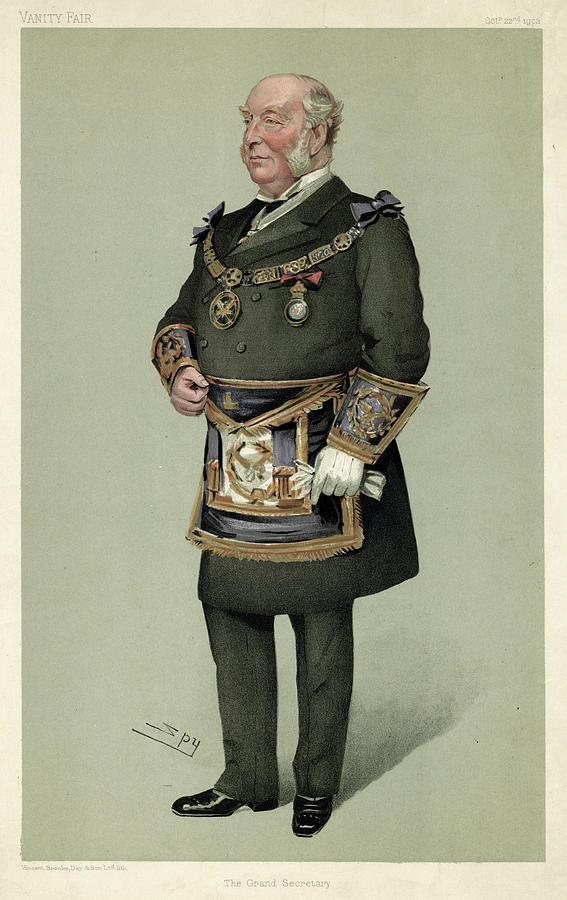
Sir Edward Letchworth, Grand Secretary was a member of the Regiment and was elected as an Honorary member of the Lodge on 5 April 1894.
He was initiated into Jerusalem Lodge No 197. He was also a member of Antiquity No 2, Bard of Avon No 778, Royal Alpha No 16 and Captain Coram Lodge No 2737 (of which he was a founding member). Letchworth also became a Grand Steward and was President of the Board of Grand Stewards in 1881.
With sudden death of the incumbent Grand Secretary, Colonel Shadwell H. Clarke in 1891, there was a little apprehension about who might succeed him. Edward Letchworth, despite his masonic credentials, was relatively unknown to the “great majority” as The Freemason’s newspaper obituary article described the situation. Nevertheless, he was known to the MW The Grand Master through his Royal duties and when an examination of his qualifications was undertaken, it was agreed by the Grand Master and others that a more fitting selection could not have been made. So, in 1892, just seventeen years after having become a freemason, he was invested in a private ceremony by the Pro Grand Master, the Earl of Amherst. He was 59 years old. It was reported at the time that Bro Letchworth, “had discharged so many and such various important duties that the news of his appointment will be received with satisfaction”.
During his service as Grand Secretary, which is the longest period of time anyone has held this office, he took part in the foundation ceremonies of over 400 lodges.
Letchworth was born in 1833 descended from a long line of Quakers who also gave their name to the town in Hertfordshire.
He practised as a Solicitor and travelled extensively in Europe and North Africa. His other interests included rowing and riding and he was proficient at both. He took up an interest in “social amelioration”, as the Victorians would call it, making the lot of the working classes better, especially children. Thus he was connected with the Foundling Hospital in Bloomsbury and St Bartholomew’s Hospital.
He was appointed by Queen Victoria to the Office of Chief Steward of the Royal Manor as well as being appointed an Officer in the Duchy of Lancaster.
He joined the Victoria Rifles in 1859, aged 26, and in 1860 was Commissioned in the 33rd Middlesex Volunteers. A career in the Army, albeit as a part time volunteer, was not congruent with Quaker tenets and he feared that he would never be much of a warrior. As a consequence he resigned his Commission in 1867.
He was a member of the Garrick.
Source: This page draws heavily on the work of Peter Aitkenhead at the Library of Freemasonry and was published in an article in Arena.